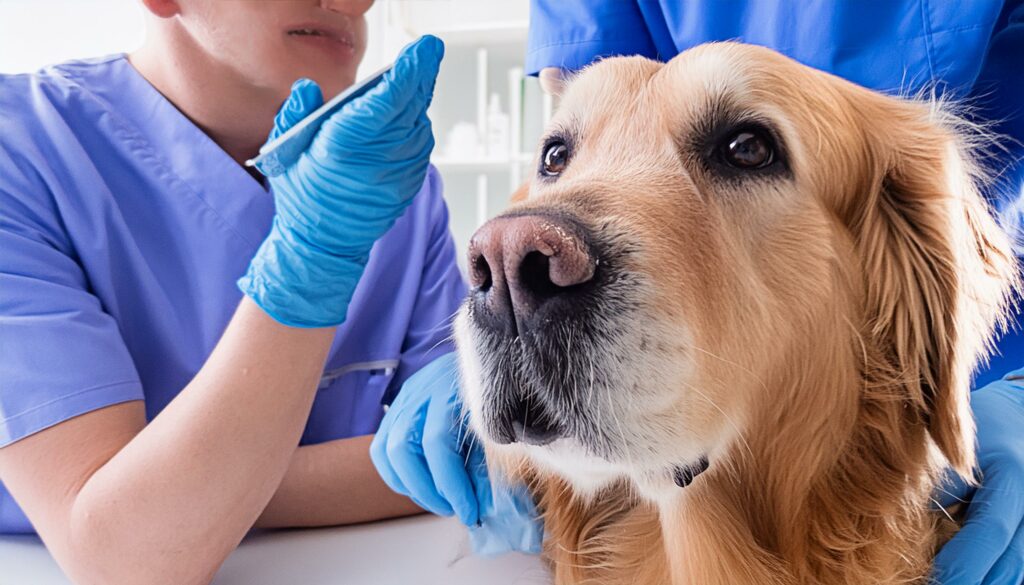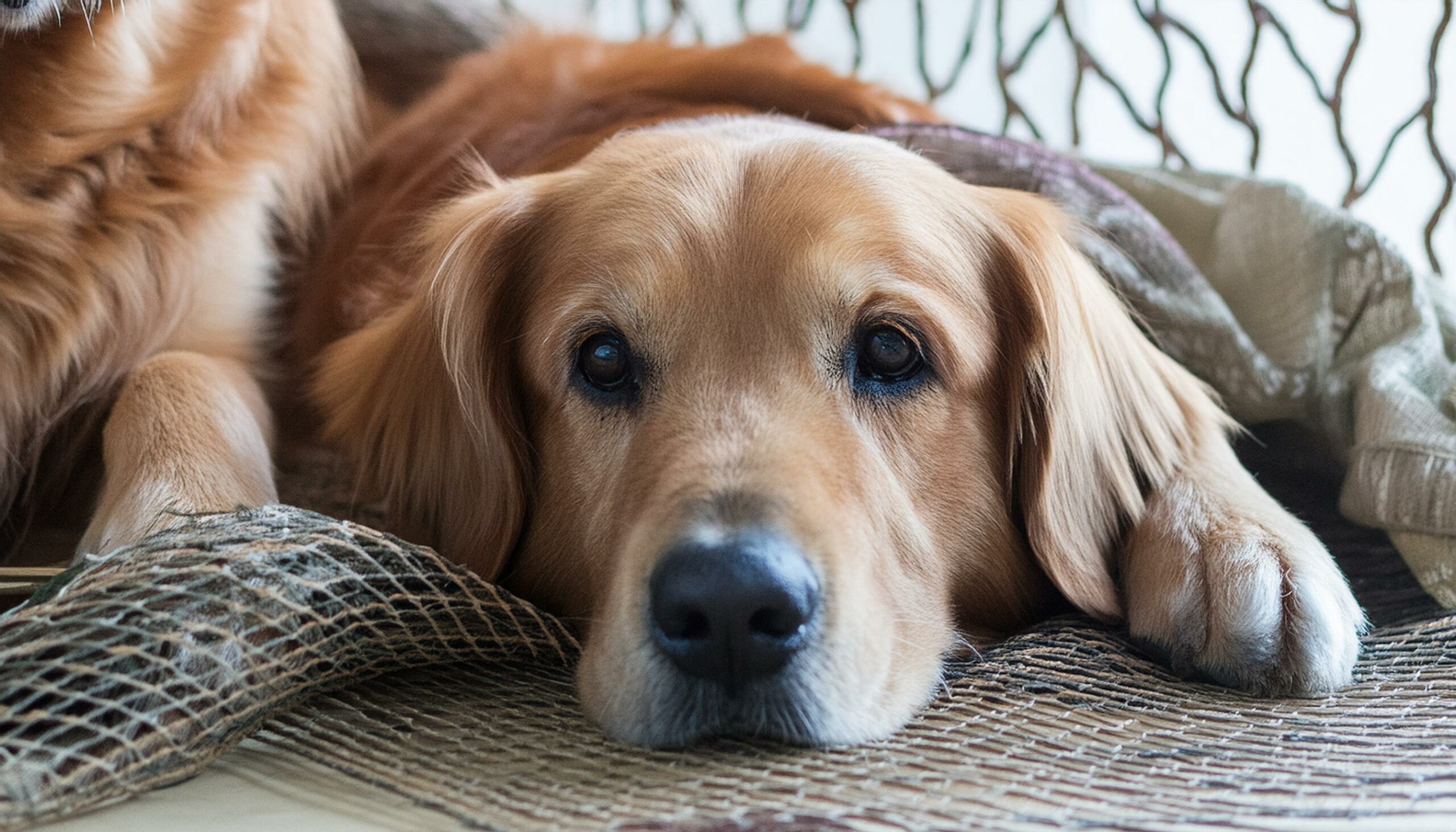Golden Retrievers are esteemed for their gentle temperament, intelligence, and versatility, making them popular as family pets and service animals alike. Their inherent curiosity and affectionate nature often lead them to explore their surroundings, putting them at risk of encountering harmful substances.
Understanding Toxicity in Dogs
Toxicity in dogs refers to the harmful effects caused by ingesting, inhaling, or coming into contact with substances that are poisonous to their system. Golden Retrievers, like all dog breeds, possess unique sensitivities to certain chemicals and foods, rendering them vulnerable to poisoning.
Common Toxic Substances for Golden Retrievers

Food
Several foods, innocuous to humans, can be toxic to Golden Retrievers. Chocolate, grapes, onions, and xylitol (a common sugar substitute found in many sugar-free products) are among the most hazardous substances for these dogs.
Plants
Numerous household plants pose a threat to Golden Retrievers if ingested. Examples include lilies, azaleas, and sago palms, all of which can induce severe reactions ranging from gastrointestinal upset to organ failure.
Household Chemicals
Household cleaners, pesticides, and rodenticides contain chemicals that are toxic to both humans and pets. Golden Retrievers may accidentally ingest these substances while exploring or licking contaminated surfaces, leading to detrimental health consequences.
Symptoms of Toxicity in Golden Retrievers
Recognizing the signs of toxicity is crucial for prompt intervention. Symptoms may vary depending on the ingested substance but commonly include vomiting, diarrhea, lethargy, seizures, and difficulty breathing.
Immediate Actions for Suspected Toxicity
If you suspect that your Golden Retriever has been exposed to a toxic substance, it’s essential to seek immediate veterinary assistance. Refrain from attempting to induce vomiting or administer home remedies without professional guidance, as these actions could exacerbate the situation.
Preventive Measures
Preventing toxicity incidents involves proactive measures such as:
- Securing hazardous substances out of reach: Store chemicals, medications, and other potentially harmful items in secure cabinets or areas inaccessible to pets.
- Avoiding feeding table scraps: Refrain from feeding your Golden Retriever human foods that may contain toxic ingredients, and educate family members and guests about the importance of this rule.
- Using pet-safe plants and fertilizers in the garden: Choose non-toxic plants and gardening products to minimize the risk of accidental ingestion by your pet.
Safe Alternatives and Practices
Opting for pet-safe alternatives and practices can significantly reduce the risk of toxicity. For example:
- Natural cleaning products: Use non-toxic cleaning solutions made from vinegar, baking soda, or lemon juice instead of chemical-based cleaners.
- Chemical-free pest control: Employ methods such as integrated pest management (IPM) to deter pests without the use of toxic chemicals or pesticides.
- Consulting with a veterinarian: Prioritize regular check-ups and consultations with a veterinarian to discuss your Golden Retriever’s specific needs and any concerns regarding potential toxicity.
Raising Awareness Among Pet Owners
Educating fellow pet owners about the dangers of toxic substances is crucial for promoting responsible pet ownership. Consider sharing information about common toxins, preventive measures, and the importance of immediate veterinary care in the event of suspected poisoning.
Conclusion
In conclusion, safeguarding the health and well-being of Golden Retrievers entails understanding common toxins, recognizing symptoms of toxicity, and implementing preventive measures. By taking proactive steps to minimize risks and prioritize pet safety, pet owners can create a safer environment for their cherished furry companions.
FAQs
What should I do if my Golden Retriever ingests a toxic substance?
Seek immediate veterinary assistance and follow their guidance.
Are there any household foods that are toxic to Golden Retrievers?
Yes, foods like chocolate, grapes, onions, and xylitol can be harmful.
How can I prevent my Golden Retriever from accessing toxic substances?
Store hazardous chemicals securely out of reach and avoid feeding them table scraps.
Can plants be toxic to Golden Retrievers?
Yes, many common household plants can be toxic if ingested by dogs.
What should I do if I suspect my Golden Retriever has been poisoned?
Contact a veterinarian immediately and provide as much information as possible about the suspected toxin.
